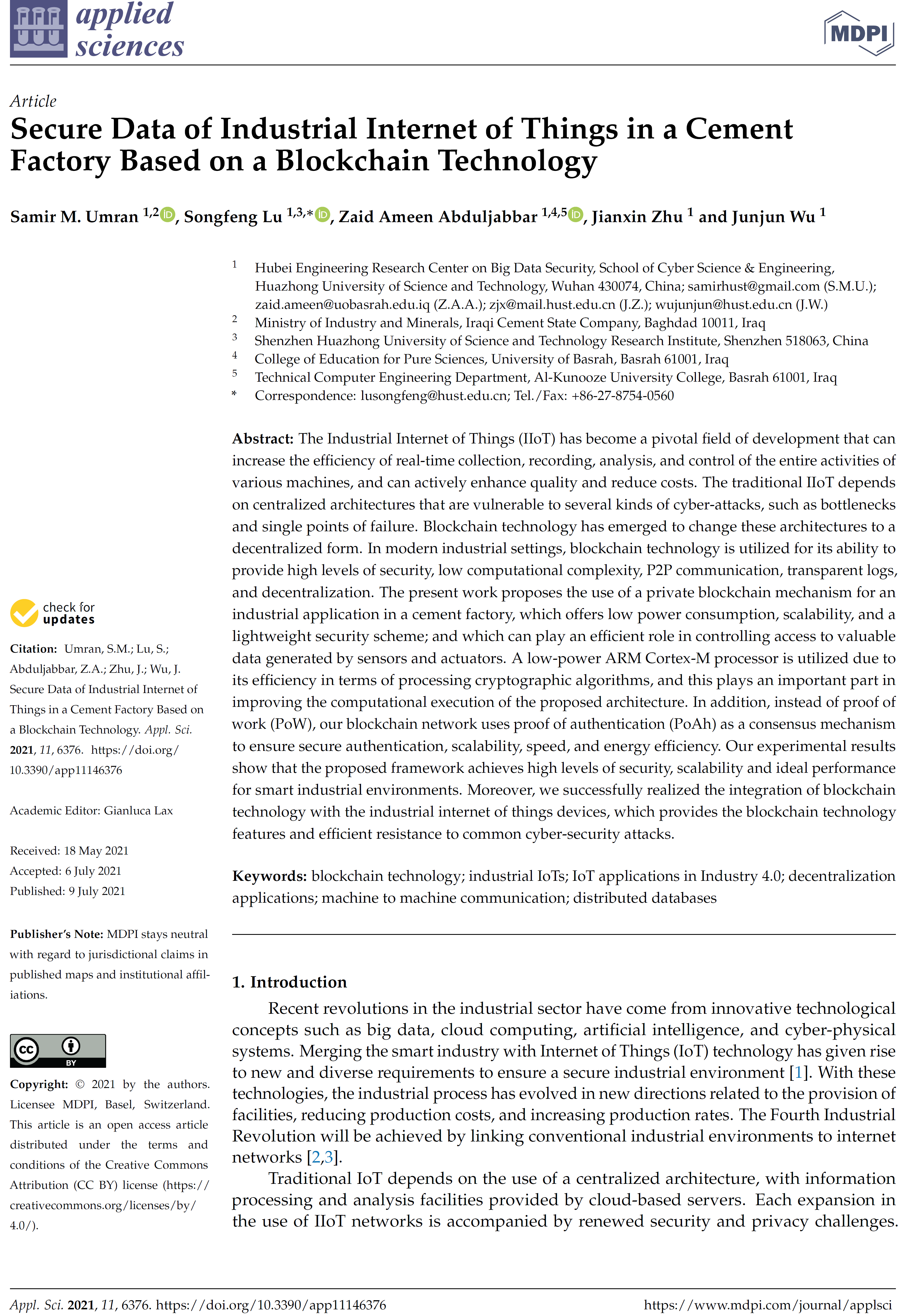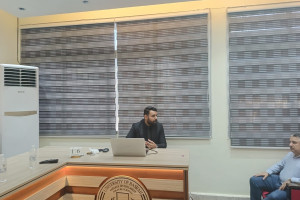
Assistant Professor Dr. Zaid Amin Abdul-Jabbar, Teaching Assistant in the Department of Computer Science at the College of Education for Pure Sciences, jointly with a group of researchers from the University of Basra, Khwajun University of Science and Technology, the Research Institute in Shenzhen, University College of Konoz, as well as the Iraqi Ministry of Industry and Minerals, has published a paper entitled
Secure Data of Industrial Internet of Things in a Cement Factory Based on a Blockchain Technology
(Securing Industrial Internet of Things Data in a Blockchain-Based Cement Factory)
In a magazine: Applied Sciences
Publisher: MDPI
Impact factor: 2.679
It is included in the container: Clarvet and Scopus
Link: https://www.mdpi.com/2076-3417/11/14/6376
Summary
Industrial Internet of Things (IIoT) has become a pivotal area of development that can increase the efficiency of real-time collection, recording, analysis and control of the entire activities of various machines, and can effectively improve quality and reduce costs. Traditional IoT technology relies on centralized architectures that are vulnerable to several types of cyberattacks, such as bottlenecks and single points of failure. Blockchain technology has emerged to change these architectures into a decentralized form. In modern industrial environments, blockchain technology is used for its ability to provide high levels of security, low computational complexity, P2P connectivity, transparent records, and decentralization. The present work proposes the use of blockchain mechanism for industrial application in cement plant, which provides low energy consumption, scalability, and security system with low computational cost; Which can play an effective role in controlling access to data files generated by sensors and actuators. A low-power ARM Cortex-M processor is used due to its efficiency in terms of processing cryptographic algorithms, and this plays an important role in improving the computational implementation of the proposed architecture. In addition, instead of Proof of Work (PoW), our blockchain network uses Proof of Authentication (PoAh) as a mechanism to ensure secure authentication, scalability, speed and energy efficiency. Our experimental results show that the proposed framework achieves high levels of security, scalability and optimal performance for intelligent industrial environments. Moreover, we have successfully realized the integration of blockchain technology with industrial IoT devices, which provides the advantages of blockchain technology and effective resistance to common cybersecurity attacks.








